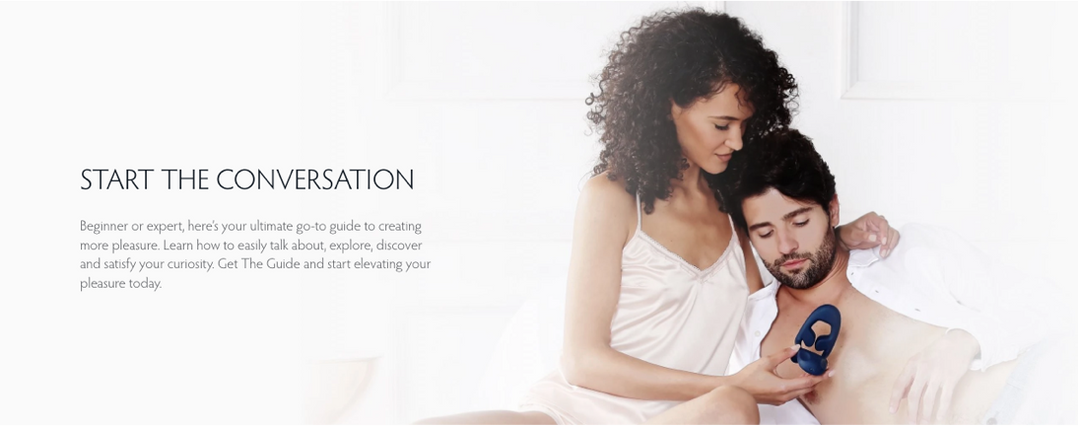What does it mean to truly consent sexually to something? In the past, sexual consent was often seen as a very simple thing: a ‘yes’ – or even simply an absence of a ‘no’. While the idea that ‘no means no’ is still a very important part of our discussion around consent, our understanding has moved on quite a lot from the idea of a simple ‘yes/no’ tick box.
Perhaps more importantly, in 2018 we have far less tolerance for the idea that some people have a ‘right’ to sex in any given context. Instead we focus on individual responsibilities: the responsibility to communicate, listen to your partner, and seek consent based on mutual desire.
Marital rape and ‘implied consent’
We were discussing this idea in MysteryVibe HQ recently, as we poured over news that a court in India has ruled that marriage does not constitute a contract for sexual activity. Most of you reading this blog will understand, hopefully, that no relationship constitutes blanket consent to any and all sexual activity: your partner should never force you into sexual activity that you do not want, whether you’re married or not.
But the idea that marriage gives you certain ‘conjugal rights’ still endures in some cultures – India does not yet have a law that specifically outlaws marital rape, although perhaps this decision by the court will be an important step towards doing that. And until 1991, marital rape was still legal in the UK. In 1984, on considering whether the definition of ‘rape’ should apply to married relationships, the Criminal Law Revision Committee decided that it shouldn’t:
“Where the husband goes so far as to cause injury, there are available a number of offences against the person with which he may be charged, but the gravamen of the husband’s conduct is the injury he has caused not the sexual intercourse he has forced.”
This bizarre and terrifying idea clung on until as late as the 1990s, when eventually courts started to rule – like the one in India – that marriage should not be interpreted as giving explicit, ongoing consent to sexual activity.
But it’s not just within marriage where people have struggled to understand consent: over the last few years we’ve seen a flurry of sex tech companies each with their own ‘innovative’ idea to solve the issue of consent once and for all – by creating an app where people can lock down sexual consent.
One of the earliest versions of these, Good2Go, essentially prompted people with a series of questions, giving them the option to consent, refuse, or initiate a conversation and then go back to step one. Unsurprisingly, the app didn’t take off, but that didn’t stop lots of other companies trying to do similar things: lock consent down into a simple ‘yes’ or ‘no’ before sex, with little acknowledgement of the fact that consent must be ongoing. In short: you could tick a box to say ‘yes’, but that didn’t mean you couldn’t say ‘no’ at any point during the sexual interaction.
But this is no more a tech problem than it i’s a contractual problem: just as marriage doesn’t constitute ongoing consent to sex, neither does a tickbox on a phone app. While these examples are focused on very different kinds of relationships, the problem at the heart is the same: they present consent as something which you offer once, and then do not have the chance to withdraw. That isn’t consent in any meaningful sense, and this conception of it can cause a lot of harm.
Sexual rights versus responsibilities – a better understanding of sexual consent

So what does real consent actually look like? Genuine consent is something given freely, without pressure, and it can be withdrawn at any time. One of the key problems with discussing consent within marriage is that in the past, the debate was so often framed around the ‘rights’ of the person who wanted to have sex. Literally: the phrase ‘conjugal rights’ exists for exactly this reason.
Likewise when we’re looking at consent apps, they seem to be focused more on protecting potential rapists rather than ensuring genuine consent from all parties. Writing in Motherboard shortly after the release of consent app SaSie, Lux Alptraum explained that:
“How the app guarantees that the agreement really was signed by two consenting adults—and not, say, someone pressuring their partner into clicking yes on an agreement, or a particularly devious person trying to fake a yes—isn’t particularly clear. But that’s only the beginning of its issues. … As Jaclyn Friedman, editor of Yes Means Yes! Visions of Female Sexual Power & A World Without Rape, notes, “People think about consent in terms of ‘I need to cover my ass so no one can accuse me of rape.’ And honestly, when you’re approaching consent from that angle, that’s a really rapey angle… it’s about covering your butt instead of actually showing up for your partner.””
Both of these approaches skew heavily towards the ‘right’ of one partner to have sex without being refused (or prosecuted afterwards), and when you put it like that it’s obvious that they’re both dangerous and unworkable.
So what’s the answer? Luckily, our conversation around consent is changing rapidly, and it seems like the focus has switched from ‘rights’ to responsibilities. Consent is no longer something that’s assumed, and then perhaps withdrawn with a ‘no’ (or a divorce). Instead individuals are responsible for actively checking in with a partner, talking openly about what you want and listening to someone’s answer.
Where there is a power imbalance in a relationship, the person who has more power has greater responsibility for communication and checking in. Where two people have mismatched desires or libidos, both of them have a responsibility to communicate that to their partner and work out the right solution for them.
It’s a more communication-focused approach, one which can’t really be handled by an app, and certainly not one that gives blanket consent on an ongoing basis: the whole point of communication is that there’s no point at which it stops.































